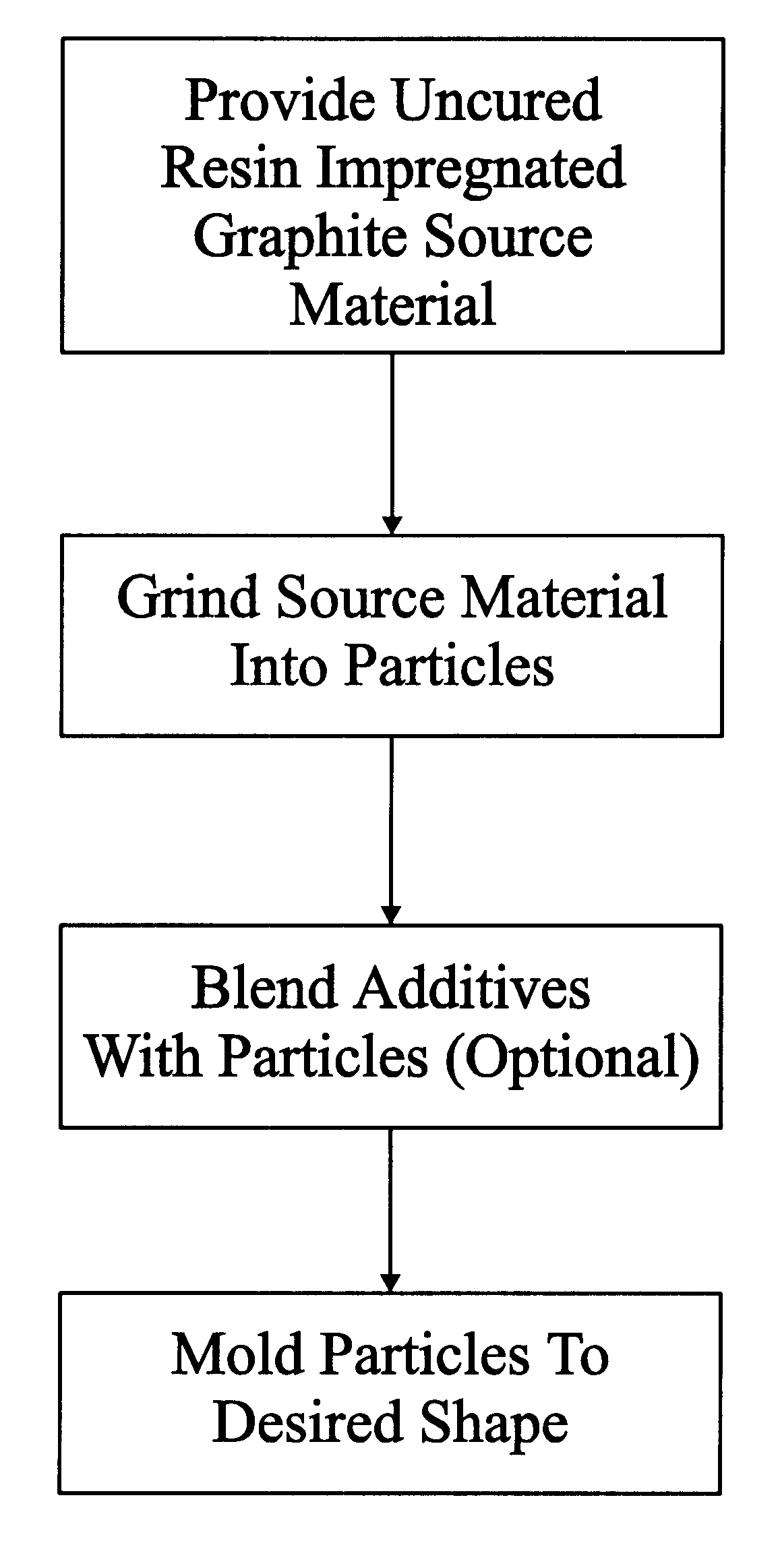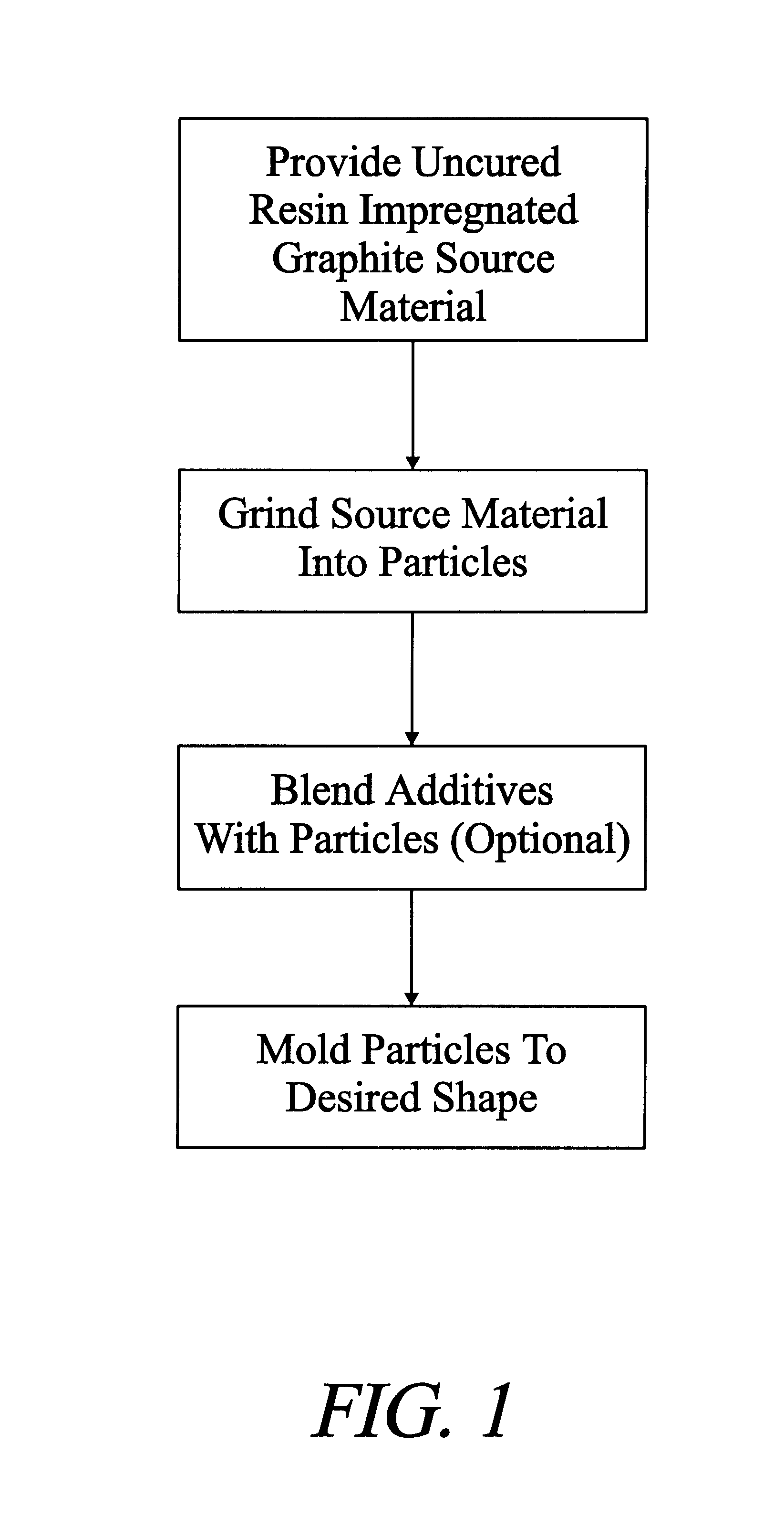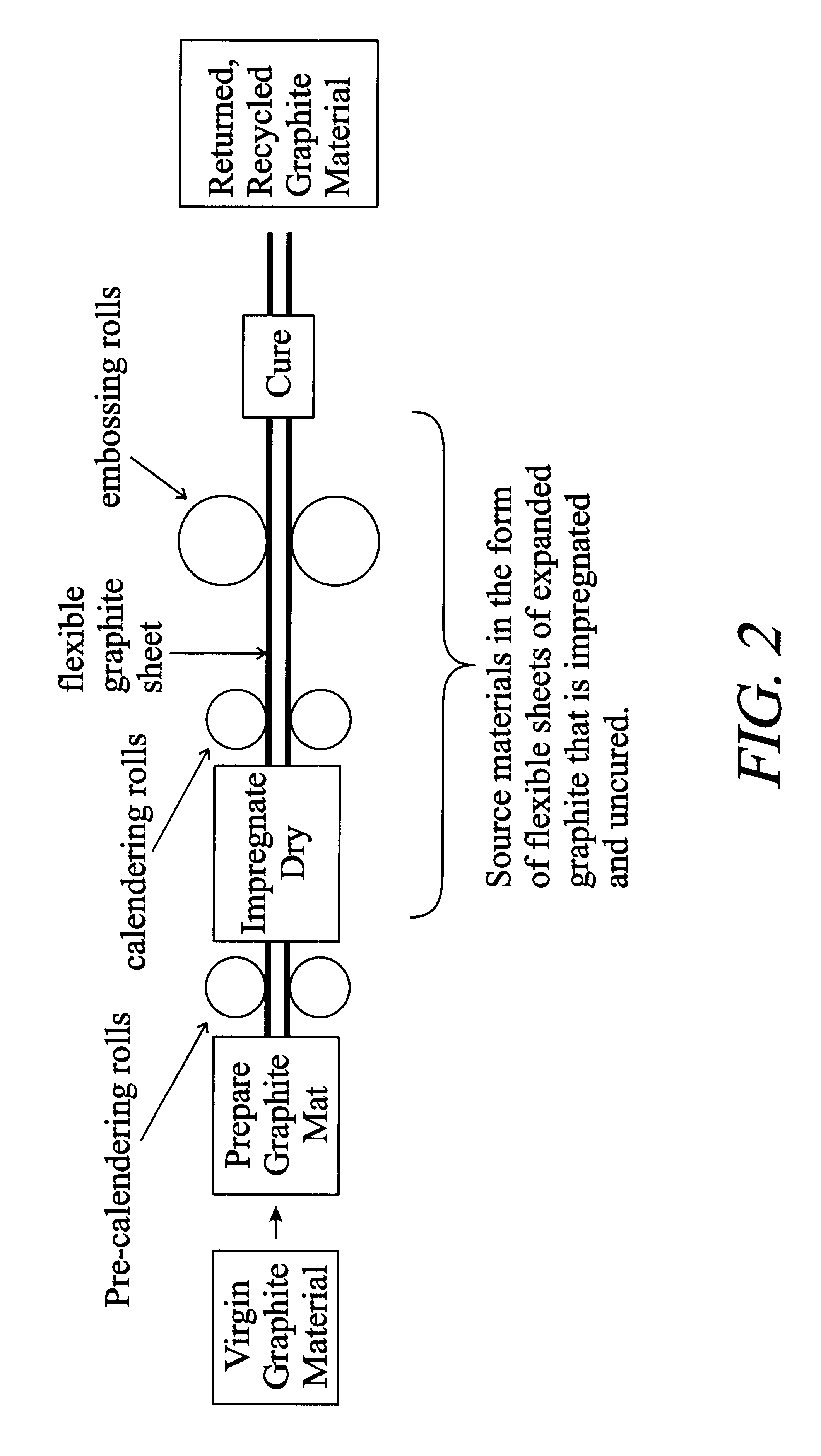Molding of materials from graphite particles
a graphite particle and material technology, applied in the direction of cell components, sustainable manufacturing/processing, artificial filament recovery, etc., can solve the problem that the scope of the source materials used in and the process is very limited
- Summary
- Abstract
- Description
- Claims
- Application Information
AI Technical Summary
Benefits of technology
Problems solved by technology
Method used
Image
Examples
Embodiment Construction
Uncured epoxy impregnated flexible graphite sheet material is comminuted to produce particles 100% of which will pass through 50 mesh. The particles are produced from 70 mg / cm2 sheet having a resin content of approximately 30%. The particles are vacuum die-pressed at approximately 4500 psi, to form a flow field plate for a fuel cell. The plate has a density of 1.31 g / cm.sup.3, and has good definition.
All cited patents and publications referred to in this application are incorporated by reference.
The invention thus being described, it will be obvious that it may be varied in may ways. Such variations are not to be regarded as a departure from the spirit and scope of the present invention and all such modifications as would be obvious to one skilled in the art are intended to be included within the scope of the following claims.
PUM
| Property | Measurement | Unit |
|---|---|---|
| density | aaaaa | aaaaa |
| density | aaaaa | aaaaa |
| temperatures | aaaaa | aaaaa |
Abstract
Description
Claims
Application Information
 Login to View More
Login to View More - R&D
- Intellectual Property
- Life Sciences
- Materials
- Tech Scout
- Unparalleled Data Quality
- Higher Quality Content
- 60% Fewer Hallucinations
Browse by: Latest US Patents, China's latest patents, Technical Efficacy Thesaurus, Application Domain, Technology Topic, Popular Technical Reports.
© 2025 PatSnap. All rights reserved.Legal|Privacy policy|Modern Slavery Act Transparency Statement|Sitemap|About US| Contact US: help@patsnap.com



